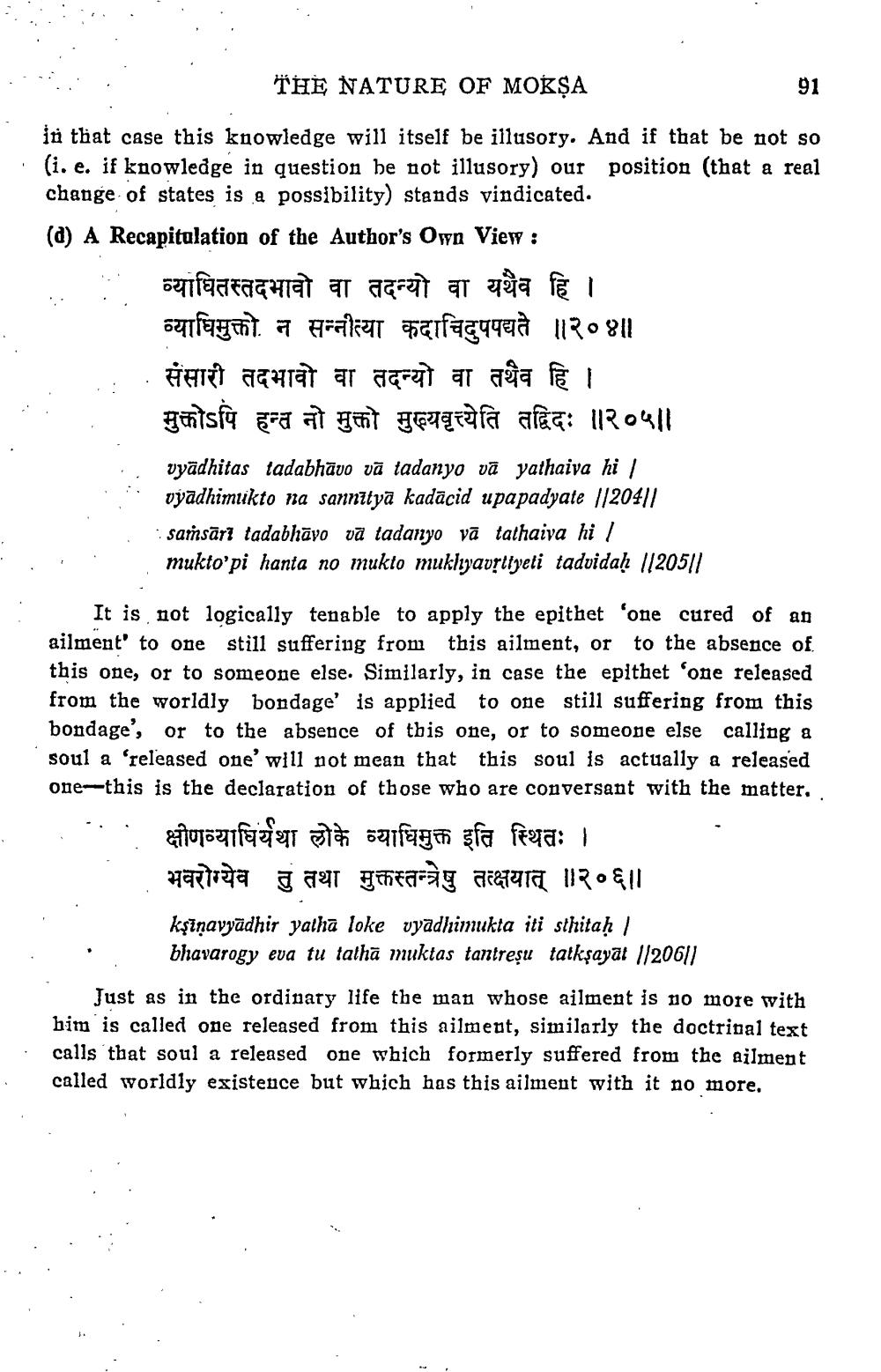________________
THE NATURE OF MOKSA
91
in that case this knowledge will itself be illusory. And if that be not so (i. e. if knowledge in question be not illusory) our position (that a real change of states is a possibility) stands vindicated. (d) A Recapitulation of the Author's Own View : .. . TilaakaChat ar agrait at ea
व्याधिमुक्तो. न सन्नीत्या कदाचिदुपपद्यते ॥२०४॥ संसारी तदभावो वा तदन्यो वा तथैव हि । मुक्तोऽपि हन्त नो मुक्तो मुख्यवृत्त्येति तद्विदः ॥२०५॥ vyadhitas tadabhāvo vā tadanyo vā yathaiva hi / vyadhimukto na sannityā kadācid upapadyate 1120411 : samsārı tadabhāyo va tadanyo vā tathaiva hi / mukto'pi hanta no mukto mukliyavrtiyeti tadvidaḥ 1/2051/
It is not logically tenable to apply the epithet 'one cured of an ailment' to one still suffering from this ailment, or to the absence of this one, or to someone else. Similarly, in case the epithet 'one released from the worldly bondage' is applied to one still suffering from this bondage', or to the absence of this one, or to someone else calling a soul a 'released one' will not mean that this soul is actually a released one-this is the declaration of those who are conversant with the matter,
क्षीणन्याधियथा लोके व्याधिमुक्त इति स्थितः । भवरोग्येव तु तथा मुक्तस्तन्त्रेषु तत्क्षयात् ॥२०६॥ kşınavyādhir yatha loke vyadhimukta iti sthitaḥ / bhavarogy eva tu tathā muktas tantreșu tatkşayat 1/2011
Just as in the ordinary life the man whose ailment is no more with him is called one released from this ailment, similarly the doctrinal text calls that soul a released one which formerly suffered from the ailment called worldly existence but which has this ailment with it no more.




